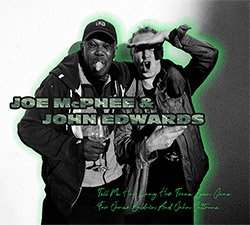
The incredible first meeting between legendary saxophonist Joe McPhee and double bassist John Edwards is this performance at the 2019 Artacts festival in Austria, a powerfully reflective free jazz concert with McPhee speaking & preaching about the loss of giants John Coltrane, Albert Ayler and James Baldwin, as they stand upon their shoulders through free music.
In Stock
Quantity in Basket: None
Log In to use our Wish List
Shipping Weight: 3.00 units
EU & UK Customers:
Discogs.com can handle your VAT payments
So please order through Discogs
Sample The Album:
Joe McPhee-saxophone, vocals
John Edwards-double bass
Click an artist name above to see in-stock items for that artist.
UPC: 5052571011324
Label: Klanggalerie
Catalog ID: GG416
Squidco Product Code: 32558
Format: CD
Condition: New
Released: 2022
Country: Austria
Packaging: Digipack
Recorded at St. Johann, in Tirol, Austria, on March 17th, 2019. Originally released in 2021 as a vinyl LP on the Idyllic Noise label with catalog code IDNO 0013.
"Almost every recording with Joe McPhee builds a bridge to the past. Especially at live gigs, he likes to begin his performances with introductory words, often addressing where the music he plays comes from. These openings are often filled with socio-cultural, political, and religious references. This also goes for Tell Me How Long Has Trane Been Gone. McPhee preaches in the style of Martin Luther King - supported by John Edwards's tremolos and slabs on the bass - about John Coltrane's death and the impact it has had for the community by making hints to the work of the writer James Baldwin. Doing this, he uses typical stylistic devices: metaphors, repetitions, biblical and literary allusions. It takes more than four minutes before he lets his saxophone ring - in typical John Coltrane style, of course.
Tell Me How Long Has Trane Been Gone was recorded at the artacts festival in St. Johann/ Austria and is considered one of the most wonderful moments in the festival's long history. For the first time McPhee played in a duo with John Edwards (as a trio the two already worked with drummer Klaus Kugel) and the combination of Joe McPhee's emotional spirituality and John Edwards's enormous playfulness was rightfully celebrated by the audience.
The two of them demonstrate the whole range of what free improvised music has to present today. Of course, Joe McPhee is not a mere imitator of John Coltrane's music, but has developed his own distinctive style. This becomes clearest in "Whispers of Naima", when he blows next to the mouthpiece, so to speak, and thus sings and plays the instrument at the same time. John Edwards counters the created overtones and the almost exaggerated vibrato with delicate, jotted notes. Then again, they show another side of their interplay on "A Sojourner's Truth", when McPhee's blues-soaked lines meet a bass almost reminiscent of a didgeridoo. [...]"-."-Martin Schray, The free Jazz Collective
Get additional information at The Free Jazz Collective
Artist Biographies
• Show Bio for Joe McPhee "Joe McPhee, born November 3,1939 in Miami, Florida, USA, is a multi-instrumentalist, composer, improviser, conceptualist and theoretician. He began playing the trumpet at age eight, taught by his father, himself a trumpet player. He continued on that instrument through his formative school years and later in a U.S. Army band stationed in Germany, at which time he was introduced to performing traditional jazz. Clifford Thornton's Freedom and Unity, released in 1969 on the Third World label, is the first recording on which he appears as a side man. In 1968, inspired by the music of Albert Ayler, he took up the saxophone and began an active involvement in both acoustic and electronic music. His first recordings as leader appeared on the CJ Records label, founded in 1969 by painter Craig Johnson. These include Underground Railroad by the Joe McPhee Quartet (1969), Nation Time (1970), Trinity (1971) and Pieces of Light (1974). In 1975, Swiss entrepreneur Werner X. Uehlinger release Black Magic Man by McPhee, on what was to become Hat Hut Records. In 1981, he met composer, accordionist, performer, and educator Pauline Oliveros, whose theories of "deep listening" strengthened his interests in extended instrumental and electronic techniques. he also discovered Edward de Bono's book Lateral Thinking: A Textbook of Creativity, which presents concepts for solving problems by "disrupting an apparent sequence and arriving at the solution from another angle." de Bono's theories inspired McPhee to apply this "sideways thinking" to his own work in creative improvisation, resulting in the concept of "Po Music." McPhee describes "Po Music" as a "process of provocation" (Po is a language indicator to show that provocation is being used) to "move from one fixed set of ideas in an attempt to discover new ones." He concludes, "It is a Positive, Possible, Poetic Hypothesis." The results of this application of Po principles to creative improvisation can be heard on several Hat Art recordings, including Topology, Linear B, and Oleo & a Future Retrospective. In 1997, McPhee discovered two like-minded improvisers in bassist Dominic Duval and drummer Jay Rosen. The trio premiered at the Vision Jazz Festival in 1998 but the concert went unnoticed by the press. McPhee, Duval, and Rosen therefore decided that an apt title for the group would be Trio X. In 2004 he created Survival Unit III with Fred Lonberg-Holm and Michael Zerang to expand his musical horizons and with a career spanning nearly 50 years and over 100 recordings, he continues to tour internationally, forge new connections while reaching for music's outer limits." ^ Hide Bio for Joe McPhee • Show Bio for John Edwards "After taking up the bass, around 1987, John Edwards co-formed The Pointy Birds who went on to win awards for their music for The Cholmondeleys and Featherstonehaughs dance troupes. The group appeared at festivals in Glasgow, Edinburgh, Moers, Leverkusen, Copenhagen. Around 1990, Edwards played his first gigs with London improvisers such as Roger Turner, Lol Coxhill, Maggie Nicols, Phil Minton. Between 1990 and 1995 Edwards was a member of three touring groups simultaneously: B-Shops For The Poor, The Honkies and GOD. During this period he also became an increasingly regular player on the London improvised music scene and performed his first solo gigs; he composed and performed music theatre with the bass and cello duo The Great Explorers, street-busked a lot and appeared at many more festivals in Germany, Estonia, France, Italy, Czech, etc. Since 1995 John Edwards has become a "mainstay" of the London scene, playing with just about everybody, an activity that has seen him clocking up between 150 and 200 gigs a year. He has become regular player with Evan Parker, in many groupings, and with Tony Bevan, Veryan Weston, and Elton Dean, often in collaboration with Mark Sanders on percussion. He has become a more frequent player on the European (and festival) scene, appearing at Taktlos, Ulrichsburg, Nickelsdorf, Budapest, New Zealand and in the USA. He continues to work on solo performances." ^ Hide Bio for John Edwards
3/26/2025
Have a better biography or biography source? Please Contact Us so that we can update this biography.
3/26/2025
Have a better biography or biography source? Please Contact Us so that we can update this biography.
Track Listing:
1. Tell Me How Long Has Trane Been Gone 22:21
2. A Sojourner's Truth 8:20
3. Whispers Of Naima 10:12
4. The Onliest Monk 3:30
Improvised Music
Jazz
Free Improvisation
Duo Recordings
NY Downtown & Metropolitan Jazz/Improv
London & UK Improv & Related Scenes
Staff Picks & Recommended Items
New in Improvised Music
Last Copy of Items that will not be restocked...
Search for other titles on the label:
Klanggalerie.


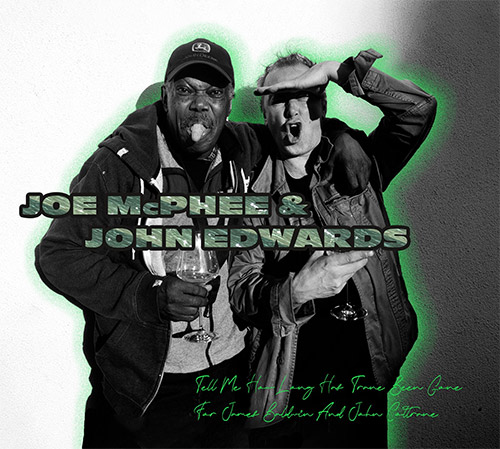
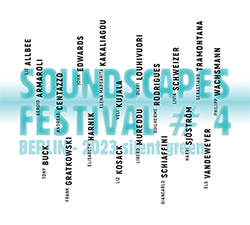
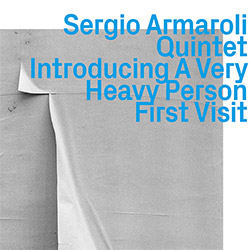


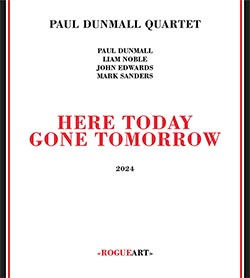

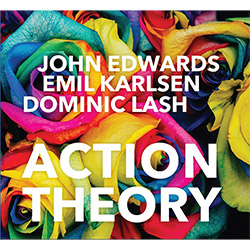

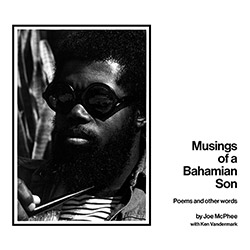


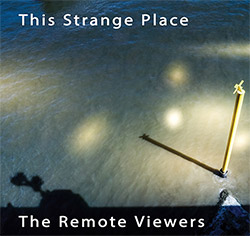
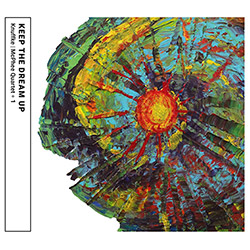
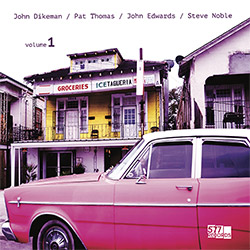
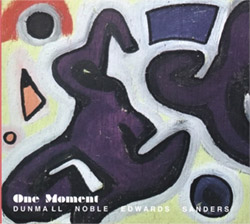
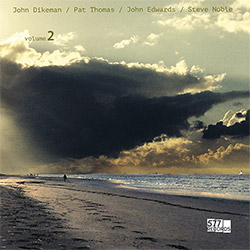

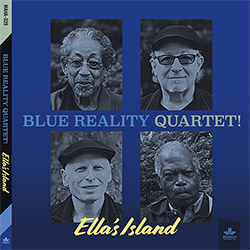













![Ackerley / Prymek / Turner: All Hope With Sleeping Minds [CASSETTE]](https://www.teuthida.com/productImages/misc4/35950.jpg)
![Myers, David Lee : Tin Drop Tear [BOOK w/ DOWNLOAD]](https://www.teuthida.com/productImages/misc4/36030.jpg)



![Schindler, Udo / Sandy Ewen / Damon Smith: Munich Sound Studies Vols. 4, 5 & 6 [3 CDs]](https://www.teuthida.com/productImages/misc4/35966.jpg)






![Turbulence Orchestra & Sub-Units: Smear Out the Difficulties (Double Live) [2 CDs]](https://www.teuthida.com/productImages/misc4/36048.jpg)
![Perelman, Ivo / Tyshawn Sorey: Paralell Aesthetics [2 CDs]](https://www.teuthida.com/productImages/misc4/35871.jpg)



![Musicworks Magazine: #150 Winter 2024/25 [MAGAZINE + CD]](https://www.teuthida.com/productImages/misc4/36035.jpg)





![Glenn, Jordan: Flustered [CASSETTE]](https://www.teuthida.com/productImages/misc4/35948.jpg)


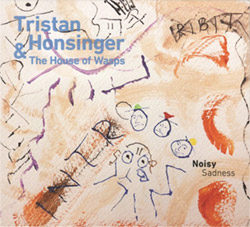
![Lindorff-Ellery, Evan: Church Recordings from Monhegan [CASSETTE]](https://www.teuthida.com/productImages/misc4/35949.jpg)
![Schindler, Udo / Werner Dafeldecker / Gunnar Geisse: Travelling Sound Images - Cognitive Transfers [Trio]](https://www.teuthida.com/productImages/misc4/35767.jpg)

![Egberth, Dennis: The Dennis Egberth Dynasty [VINYL]](https://www.teuthida.com/productImages/misc4/35549.jpg)


![Schindler, Udo / Rieko Okuda / Eric Zwang Eriksson: Disturbed Terrains [2 CDs]](https://www.teuthida.com/productImages/misc4/35330.jpg)
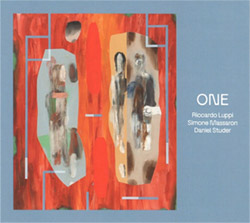
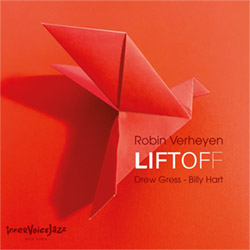
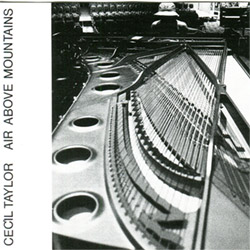


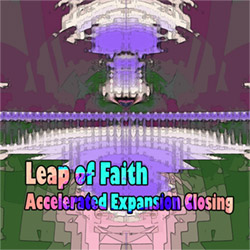
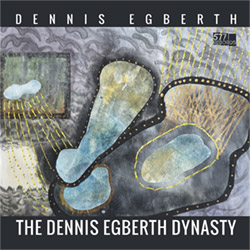
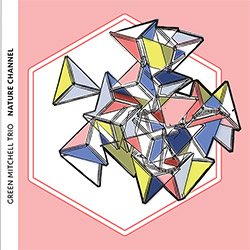

![Wolf Eyes / Anthony Braxton: Live At Pioneer Works, 26 October 2023 [VINYL]](https://www.teuthida.com/productImages/misc4/35839.jpg)




![Olencki, Weston : Pearls Ground Down To Powder [VINYL]](https://www.teuthida.com/productImages/misc4/35956.jpg)
![Myers, David Lee: Oculus [2CDs]](https://www.teuthida.com/productImages/misc4/35857.jpg)


![dustsceawung: dustsceawung [CASSETTE w/ Download]](https://www.teuthida.com/productImages/misc4/35753.jpg)




![Halls of the Machine: Atmospheres For Lovers And Sleepers [CASSETTE w/ DOWNLOAD]](https://www.teuthida.com/productImages/misc4/35806.jpg)



![AHC (Alexander Cooper): Lase [2 CDs]](https://www.teuthida.com/productImages/misc4/35754.jpg)



![Fagaschinski, Kai / Yan Jun : Graveyard Processions [VINYL w/ DOWNLOAD]](https://www.teuthida.com/productImages/misc4/35474.jpg)
![Brant, Cody / Carl Kruger: Smoke Detail [CASSETTE w/ DOWNLOAD]](https://www.teuthida.com/productImages/misc4/35551.jpg)







![Zorn, John / JACK Quartet: The Complete String Quartets [2 CDs]](https://www.teuthida.com/productImages/misc4/35609.jpg)

![Lonsdale, Eden: Dawnings [2 CDs]](https://www.teuthida.com/productImages/misc4/35480.jpg)







![Sanna, Claudio: Compositori Sardi Contemporanei II [2 CDs]](https://www.teuthida.com/productImages/misc4/35317.jpg)







![Zurria, Manuel: Fame di Vento [3 CDs]](https://www.teuthida.com/productImages/misc4/35167.jpg)

![Granberg, Magnus / Nattens Inbrott / Skogen: Holde Traume, Kehret Wieder! [2 CDs]](https://www.teuthida.com/productImages/misc4/35038.jpg)

![Electric Bird Noise / Derek Roddy: 8-10-22 [CD EP]](https://www.teuthida.com/productImages/misc4/35970.jpg)








![Elephant9 : Mythical River [VINYL]](https://www.teuthida.com/productImages/misc4/34624.jpg)



![Elephant9 with Terje Rypdal: Catching Fire [VINYL 2 LPs]](https://www.teuthida.com/productImages/misc4/35355.jpg)
![Deerlady (Obomsawin, Mali / Magdalena Abrego): Greatest Hits [VINYL]](https://www.teuthida.com/productImages/misc4/34876.jpg)







![Surplus 1980: Illusion of Consistency [CD]](https://www.teuthida.com/productImages/misc4/35069.jpg)
![Staiano, Moe: Away Towards the Light [VINYL + DOWNLOAD]](https://www.teuthida.com/productImages/misc4/35037.jpg)



![Caveira (Gomes / Sousa / Abras / Ferrandini): Ficar Vivo [VINYL]](https://www.teuthida.com/productImages/misc4/34643.jpg)
![Coley, Byron: Dating Tips for Touring Bands [VINYL]](https://www.teuthida.com/productImages/misc4/17906.jpg)

![Lost Kisses: My Life is Sad & Funny [DVD]](https://www.teuthida.com/productImages/misc4/lostKissesDVD.jpg)